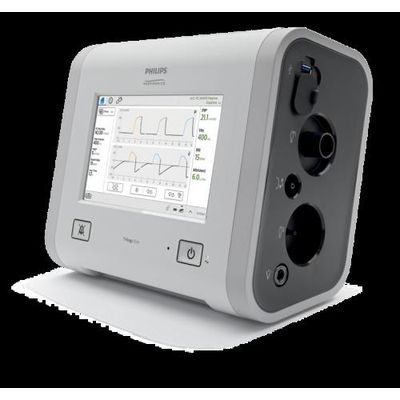

Rotech Healthcare Inc.
- Home
- Companies
- Rotech Healthcare Inc.
- Products
- Ventilator Therapy

Ventilator Therapy
Rotech offers both invasive and non-invasive ventilators for patients with neuromuscular disease, thoracic restrictive disease, and chronic respiratory failure related to COPD.
Most popular related searches
non-invasive ventilator
non-invasive ventilation
respiratory failure
emergency room
hospitalization rate
nasal mask
portable ventilator
clinical assessment
blood oxygen
neuromuscular disease
Non-invasive ventilation therapy reduces the work required to breathe for patients with chronic respiratory failure. NIV is an effective therapy that can help maintain or improve quality of life, reduce COPD exacerbation frequency, hospital admission rates, and length-of-stay. It can reduce healthcare costs for patients suffering from chronic respiratory failure resulting from COPD exacerbations. Studies have shown that NIV reduces the need for intubation and complications in these patients while increasing survival rates.
Non-invasive ventilation (NIV) delivers breathing support through a non-invasive method, like a nasal mask, instead of an invasive approach, like a tracheostomy. The NIV machine helps fully inflate the lungs, improving blood oxygen levels, and reducing carbon dioxide levels. NIV can also help enhance the quality of sleep and alleviate symptoms resulting from low levels of oxygen or accumulated carbon dioxide like morning headaches, daytime fatigue, and shortness of breath.
NIV therapy helps decrease COPD-related problems, or exacerbations, by keeping CO2 and O2 levels stable. This increased stability allows patients to avoid expensive and unnecessary hospitalizations and reduce emergency room and unscheduled doctor visits. Studies by Royal Philips have shown that NIV therapy use decreases a patient’s hospital readmission rate by 97%.
PATIENTS WHO CHOOSE ROTECH FOR NON-INVASIVE VENTILATION BENEFIT FROM OUR CLINICAL EXPERTISE AND 24/7 SUPPORT.
- Clinical assessments
- Home assessments (as needed)
- Portable ventilators to ensure patients remain as active as possible
- Patient and caregiver education and training
- Insurance experts
